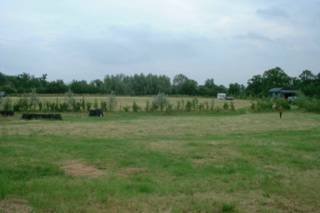My Movable Type blog is back up now.
Over here
Bringing an old learning blog up to date with current activities as an acoustic singer songwriter gigging on the Isle of Wight as Andy Roberts
Wednesday, December 01, 2004
Monday, November 29, 2004
blog still down
My other blog, the one with photos, news, videos, commentary and stuff has been unavailable for two days. This is because it's hosted on a computer connected to Anglia Polytechnic University and the connection is not working at present. So don't bother clicking here for a bit.
Monday, October 18, 2004
Saturday, October 16, 2004
Thursday, October 14, 2004
Friday, September 03, 2004
first suggestion
I had a brief informal discussion with the community worker about the potential of introducing blogging in a number of ways, with a positive reaction. Will make some time next week to discuss this further.
Friday, July 02, 2004
PDP Reflection
During my journey to work this morning I reflected on my PDP and workplace learning for 2003/2004
1) I decided that the most significant learning for the year has been all that which concerns blogs.
Because it affects or will affect every aspect of what i do.
*technology
*education
*online communities
*web design
*music
each will be deeply affected by the revolution in communication brought about by blogs.
2) The main catalyst for my personal learning has been
*not the workplace
*not the Ultraversity online community
*not the Learning Facilitators
*not the set modules for study
but exposure to ideas through the work of Tom Smith mainly by reading his blog entries, by being given my own Movable Type blog at Ultralab and exchanging just a very few short comments and mails.
3) I think I have identified the prime aspect of blogging which makes the big difference. It is the 'sense of audience' which blogging brings to the authors, in no matter which field they write.
1) I decided that the most significant learning for the year has been all that which concerns blogs.
Because it affects or will affect every aspect of what i do.
*technology
*education
*online communities
*web design
*music
each will be deeply affected by the revolution in communication brought about by blogs.
2) The main catalyst for my personal learning has been
*not the workplace
*not the Ultraversity online community
*not the Learning Facilitators
*not the set modules for study
but exposure to ideas through the work of Tom Smith mainly by reading his blog entries, by being given my own Movable Type blog at Ultralab and exchanging just a very few short comments and mails.
3) I think I have identified the prime aspect of blogging which makes the big difference. It is the 'sense of audience' which blogging brings to the authors, in no matter which field they write.
Sunday, May 23, 2004
In the woodpile
Wednesday, May 12, 2004
Tuesday, May 11, 2004
Three drafts
Hi. I'm posting here because the ultralab server is down, so I can't post to my new blog, nor view it nor catch up with community stuff in First Class and also because blogger released a new interface yesterday so I wanted to try it out. In my mind I have three journal entries which are in danger of getting left unposted forever if I don't get something down now, so here are three draft entries.
1) is about a year one lesson which I took yesterday afternoon, after the teacher approached me at lunchtime. The curriculum mentions different types of media used by 'the information around us' so I decided to demonstrate the use of video and we produced some impromptu short 'silent movies'. The children had to think up mimes which were videoed, downloaded onto the computers and then played back when the other group turned up and had to guess what had been going on. I worked well with class teacher, definitely using some reflection-in-practice techniques there, all the learning objectives were covered, not just ICT but numeracy and literacy as well, and the kinaesthetic element will mean they remember it for a long time. So it was one of those occasional times when everything went right, and worth recording for that.
===========
2) this is my PDP - personal development plan, medium term overview.
It's broken down into spheres of activity I would like to develop.
* Technician
OS X administration, network management, netboot image updates, general OS X stuff.
Also control and monitoring equipment, digitalbrain and elc stuff
*ICT Coordinator
Planning, cross curriculum, assessment
*Teaching
gain some experience with adults.
*ICT Tutor
learn how to use the DV cam.
develop the ict-tutor.co.uk website
*Internet
learn how to install software in my own webspace for blogging, WIKI and mailing list software,
How to provide an aggregate RSS feed
*Self employment
setting up a business, applying for funding
*music
go to more gigs
setting up a home recording studio
Finishing off the 20 songs I wrote in Spain last year.
seeking local venues and audience
*personal finance
provision for retirement
investment
investigate possibilities for telecommuting, relocation.
===========
3) This one is a discovery I made while surfing random blogs. I read an entry from someone about to go to their first 'blogmeet'. He was looking forward to meeting people he's been exchanging blog comments with for a long time, and was wondering how blogger would recognise each other. This read just like someone from a newsgroup about to link up with their community face -to-face- for the first time and it has made me rethink my ideas about blogs and community. Bloggers seem to feel the need to identify their geographical location, and there are several web services which provide for this - chalk , geourl, London bloggers etc.
So while the things bloggers blog about tend to be person-centric, and the technology leads to nebulous links with fuzzy edges, the sense of community may be emerging for some in a different way, at the location level.
1) is about a year one lesson which I took yesterday afternoon, after the teacher approached me at lunchtime. The curriculum mentions different types of media used by 'the information around us' so I decided to demonstrate the use of video and we produced some impromptu short 'silent movies'. The children had to think up mimes which were videoed, downloaded onto the computers and then played back when the other group turned up and had to guess what had been going on. I worked well with class teacher, definitely using some reflection-in-practice techniques there, all the learning objectives were covered, not just ICT but numeracy and literacy as well, and the kinaesthetic element will mean they remember it for a long time. So it was one of those occasional times when everything went right, and worth recording for that.
===========
2) this is my PDP - personal development plan, medium term overview.
It's broken down into spheres of activity I would like to develop.
* Technician
OS X administration, network management, netboot image updates, general OS X stuff.
Also control and monitoring equipment, digitalbrain and elc stuff
*ICT Coordinator
Planning, cross curriculum, assessment
*Teaching
gain some experience with adults.
*ICT Tutor
learn how to use the DV cam.
develop the ict-tutor.co.uk website
*Internet
learn how to install software in my own webspace for blogging, WIKI and mailing list software,
How to provide an aggregate RSS feed
*Self employment
setting up a business, applying for funding
*music
go to more gigs
setting up a home recording studio
Finishing off the 20 songs I wrote in Spain last year.
seeking local venues and audience
*personal finance
provision for retirement
investment
investigate possibilities for telecommuting, relocation.
===========
3) This one is a discovery I made while surfing random blogs. I read an entry from someone about to go to their first 'blogmeet'. He was looking forward to meeting people he's been exchanging blog comments with for a long time, and was wondering how blogger would recognise each other. This read just like someone from a newsgroup about to link up with their community face -to-face- for the first time and it has made me rethink my ideas about blogs and community. Bloggers seem to feel the need to identify their geographical location, and there are several web services which provide for this - chalk , geourl, London bloggers etc.
So while the things bloggers blog about tend to be person-centric, and the technology leads to nebulous links with fuzzy edges, the sense of community may be emerging for some in a different way, at the location level.
Friday, April 23, 2004
Weblogs creating whole new campus culture
BY NAHAL TOOSI
Milwaukee Journal Sentinel
MILWAUKEE - (KRT) - Lucas Carlson was interested in what other people were thinking. Specifically, what other students at Reed College were thinking.
So last fall, he hung posters on the small Oregon school's campus, inviting Reed students to start a Weblog - an online journal - through a site he'd set up: www.reediejournals.com.
Word spread quickly. Now, more than 140 "Reedies" keep Web diaries on Carlson's site. That's more than 10 percent of Reed's 1,340 students.
Blogging is a relatively small but quickly growing phenomenon in the world of Internet users, and, like other online technologies, it is slowly invading college life. Professors are using blogs to teach and publish. College administrators use the diaries to recruit. Students use them to learn, to opine (and whine), and to network.
In the Reed case, blogging has led to a student community beyond the borders of the campus, a community that Reed administrators can't control but can peek at.
Some Reedies blog about world issues and everyday angst.
"After studying Barth for 8 hours ... The flesh is weak," wrote Michael in December. "Wretched man that I am! Who shall save me from this body of death?"
Others post pictures. Some write poetry. One dedicates her blog to her dog, Dingus, because, she insists, "my dog is cooler than you are."
"There are some people that are angry and some that are very happy and some that are lonely," said Carlson, 21, a junior. "It's really just like what you would expect out of the diversity of human emotions."
Perseus Development Corp. recently conducted a limited survey of blogging through eight major blog-hosting services and estimates at least 4.12 million such diaries exist, though many are rarely updated.
Blogs are dominated by the young, the study found. More than 92 percent are created by people younger than 30, with 51.5 percent by those ages 13 to 19. Women are slightly more likely to blog than men.
Phil Ejercito, a University of Wisconsin-Madison senior, runs a blog called the Consortium for Undermining Conservative Thought. He'd hoped to turn it into a mini-Drudge Report for the Madison, Wis., area, but it became more about the drama in his life, such as the day he was almost mistaken for a murder suspect.
Ejercito is retooling www.cfuct.org to make it a nexus for progressive groups in town, though he continues to blog as well. He said being in college gives him freedom to write what he wants. Once he gets a job, he'll have to be more careful so as not to offend or embarrass his employer, he said.
"I know for sure I have a pretty dedicated core audience on campus," said Ejercito, 22. "I don't keep track of my stats too tightly. But I do get comments from random people."
Marquette University junior Elizabeth Hadley said she's stopped blogging because she found it too time-consuming, but she follows the lives of friends elsewhere through their blogs.
Hadley finds it's a faster method of getting updated on a friend's life than a regular conversation, though obviously less personal, she said. No doubt some parents appreciate their children keeping blogs, as well.
At the University of Waterloo in Canada and Saint Michael's College in Vermont, a handful of students keep blogs that are promoted on the universities' Web sites and available to the public, especially to prospective students.
The student bloggers don't limit their online entries to school cheerleading. One learns, for instance, that Anne of the University of Waterloo is afraid of animals and small children and how Craig of Saint Michael's felt about visiting El Salvador.
On LiveJournal.com, a blog-hosting service, there's a community blog for students of Wisconsin's Beloit College. The school doesn't control it. The blog has evolved into a forum for current and prospective students who discuss the college's vices and virtues and post information about upcoming events.
Bryan Alexander, co-director of the Center for Educational Technology at Middlebury College in Vermont, taught a class on the history of the British novel using blogs. One tactic he'd use was to tell students to read a particular novel, post a few paragraphs on their blogs about some aspect of it, then check out classmates' blogs and post responses to their views.
"One thing we do know is that shy people or people who don't feel comfortable leaping into conversation do take advantage of technology to post later," Alexander said.
Stanford Law School's Lawrence Lessig is among the most well-known professors to blog. At www.lessig.org/blog, a visitor can find out which major newspaper recently quoted the copyright expert, read some of his articles, or simply learn Lessig's latest thoughts on the race for president. Readers can post feedback.
For many students, though, the academic applications of blogging are not the most appealing aspect. What leads many to blog is the chance to reveal emotions and thoughts, and perhaps some wisdom, during a time when life is all about transitions.
Milwaukee Journal Sentinel
MILWAUKEE - (KRT) - Lucas Carlson was interested in what other people were thinking. Specifically, what other students at Reed College were thinking.
So last fall, he hung posters on the small Oregon school's campus, inviting Reed students to start a Weblog - an online journal - through a site he'd set up: www.reediejournals.com.
Word spread quickly. Now, more than 140 "Reedies" keep Web diaries on Carlson's site. That's more than 10 percent of Reed's 1,340 students.
Blogging is a relatively small but quickly growing phenomenon in the world of Internet users, and, like other online technologies, it is slowly invading college life. Professors are using blogs to teach and publish. College administrators use the diaries to recruit. Students use them to learn, to opine (and whine), and to network.
In the Reed case, blogging has led to a student community beyond the borders of the campus, a community that Reed administrators can't control but can peek at.
Some Reedies blog about world issues and everyday angst.
"After studying Barth for 8 hours ... The flesh is weak," wrote Michael in December. "Wretched man that I am! Who shall save me from this body of death?"
Others post pictures. Some write poetry. One dedicates her blog to her dog, Dingus, because, she insists, "my dog is cooler than you are."
"There are some people that are angry and some that are very happy and some that are lonely," said Carlson, 21, a junior. "It's really just like what you would expect out of the diversity of human emotions."
Perseus Development Corp. recently conducted a limited survey of blogging through eight major blog-hosting services and estimates at least 4.12 million such diaries exist, though many are rarely updated.
Blogs are dominated by the young, the study found. More than 92 percent are created by people younger than 30, with 51.5 percent by those ages 13 to 19. Women are slightly more likely to blog than men.
Phil Ejercito, a University of Wisconsin-Madison senior, runs a blog called the Consortium for Undermining Conservative Thought. He'd hoped to turn it into a mini-Drudge Report for the Madison, Wis., area, but it became more about the drama in his life, such as the day he was almost mistaken for a murder suspect.
Ejercito is retooling www.cfuct.org to make it a nexus for progressive groups in town, though he continues to blog as well. He said being in college gives him freedom to write what he wants. Once he gets a job, he'll have to be more careful so as not to offend or embarrass his employer, he said.
"I know for sure I have a pretty dedicated core audience on campus," said Ejercito, 22. "I don't keep track of my stats too tightly. But I do get comments from random people."
Marquette University junior Elizabeth Hadley said she's stopped blogging because she found it too time-consuming, but she follows the lives of friends elsewhere through their blogs.
Hadley finds it's a faster method of getting updated on a friend's life than a regular conversation, though obviously less personal, she said. No doubt some parents appreciate their children keeping blogs, as well.
At the University of Waterloo in Canada and Saint Michael's College in Vermont, a handful of students keep blogs that are promoted on the universities' Web sites and available to the public, especially to prospective students.
The student bloggers don't limit their online entries to school cheerleading. One learns, for instance, that Anne of the University of Waterloo is afraid of animals and small children and how Craig of Saint Michael's felt about visiting El Salvador.
On LiveJournal.com, a blog-hosting service, there's a community blog for students of Wisconsin's Beloit College. The school doesn't control it. The blog has evolved into a forum for current and prospective students who discuss the college's vices and virtues and post information about upcoming events.
Bryan Alexander, co-director of the Center for Educational Technology at Middlebury College in Vermont, taught a class on the history of the British novel using blogs. One tactic he'd use was to tell students to read a particular novel, post a few paragraphs on their blogs about some aspect of it, then check out classmates' blogs and post responses to their views.
"One thing we do know is that shy people or people who don't feel comfortable leaping into conversation do take advantage of technology to post later," Alexander said.
Stanford Law School's Lawrence Lessig is among the most well-known professors to blog. At www.lessig.org/blog, a visitor can find out which major newspaper recently quoted the copyright expert, read some of his articles, or simply learn Lessig's latest thoughts on the race for president. Readers can post feedback.
For many students, though, the academic applications of blogging are not the most appealing aspect. What leads many to blog is the chance to reveal emotions and thoughts, and perhaps some wisdom, during a time when life is all about transitions.
Monday, March 15, 2004
The Last Post
cue lone trumpet player.....
So this is the last post to blogger, a useful though somewhat isolating resource. It's time to move on, with new tools available, a new way of making online communities, and a new ultraversity assignment to log. My new blog is located here:
blog.ultralab.net/~blogger/andy
So this is the last post to blogger, a useful though somewhat isolating resource. It's time to move on, with new tools available, a new way of making online communities, and a new ultraversity assignment to log. My new blog is located here:
blog.ultralab.net/~blogger/andy
Friday, March 12, 2004
Penultimate Post
This is probably going to be the penultimate post to this particular blog. The reason is mainly for anti-proliferation purposes. I've been learning about blogs, syndication, RSS feeds and bottom up communities to the point where I'm going too need a blog which both allows comments, and can also provide an XML feed of the type which can be read into an aggregated newsfeed reader such NetNewsWired Lite ( for Mac ) or Feedreader ( for Wintel ). Blogger won't do either of these without upgrading. The only problem is I have at least three alternatives, so it may be a short while before the Ultimate Last Post appears, which will contain a forwarding address to the next step of the blog journey.
Of course even after that I could still make a postultimate entry.
Of course even after that I could still make a postultimate entry.
Friday, February 06, 2004
Gordon Pask
I came across the ideas of Gordon Pask while researching reflection theory, relating to reflective dialogue.
Andrew Gordon Speedie-Pask, cybernetician, producer for the stage and lyricist, born June 28, 1928; died March 29, 1996.
http://tip.psychology.org/pask.html
The Conversation Theory developed by G. Pask originated from a cybernetics framework and attempts to explain learning in both living organisms and machines. The fundamental idea of the theory was that learning occurs through conversations about a subject matter which serve to make knowledge explicit
....
Pask identified two different types of learning strategies: serialists who progress through an entailment structure in a sequential fashion and holists who look for higher order relations.
http://www.pangaro.com/Pask-Archive/guardian-obit.html
Gordon Pask, who has died aged 67, spent his life developing an elegant theory of learning that stands without peer. His achievement was to establish a unifying framework that subsumes the subjectivity of human experience and the objectivity of scientific tradition. Sponsored by governments and industries on both sides of the Atlantic, his life-long research spanned biological computing, artificial intelligence, cognitive science, logic, linguistics, psychology, and artificial life. His was an original approach to age-old questions of how the human organism learns from its environment and relates to others through language.
http://artsci-ccwin.concordia.ca/edtech/ETEC606/paskboyd.html
Conversation Theory (CT) in a Nutshell
A "P-individual" (= participant) originates (by internal conversation) a conceptual procedure which when "applied" (i.e. executed) produces a representation or an action. Another P-individual tries to do the same, if the representations or actions that they produce and display in shared space, are regarded by each other to be about the same, then an agreement has been reached, and the agreed concept can be given one label which both participants can confidently use in further conversation. If however, the productions differ, then the participants need to exhibit the ways in which they are executing their concepts in order to establish a distinction between the two. At this point they become able to assign two different agreed labels. In which case each participant gains a new concept. There is however in CT, a strange recursion underlying such conversational learning, because the participants themselves are taken to be no more than emergents from previous conversational agreements, all executing in some informationally coupled M-individuals (= biological-bodies &/or machines). (See also: Glanville, "Pask a Slight Primer", (1993).
Andrew Gordon Speedie-Pask, cybernetician, producer for the stage and lyricist, born June 28, 1928; died March 29, 1996.
http://tip.psychology.org/pask.html
The Conversation Theory developed by G. Pask originated from a cybernetics framework and attempts to explain learning in both living organisms and machines. The fundamental idea of the theory was that learning occurs through conversations about a subject matter which serve to make knowledge explicit
....
Pask identified two different types of learning strategies: serialists who progress through an entailment structure in a sequential fashion and holists who look for higher order relations.
http://www.pangaro.com/Pask-Archive/guardian-obit.html
Gordon Pask, who has died aged 67, spent his life developing an elegant theory of learning that stands without peer. His achievement was to establish a unifying framework that subsumes the subjectivity of human experience and the objectivity of scientific tradition. Sponsored by governments and industries on both sides of the Atlantic, his life-long research spanned biological computing, artificial intelligence, cognitive science, logic, linguistics, psychology, and artificial life. His was an original approach to age-old questions of how the human organism learns from its environment and relates to others through language.
http://artsci-ccwin.concordia.ca/edtech/ETEC606/paskboyd.html
Conversation Theory (CT) in a Nutshell
A "P-individual" (= participant) originates (by internal conversation) a conceptual procedure which when "applied" (i.e. executed) produces a representation or an action. Another P-individual tries to do the same, if the representations or actions that they produce and display in shared space, are regarded by each other to be about the same, then an agreement has been reached, and the agreed concept can be given one label which both participants can confidently use in further conversation. If however, the productions differ, then the participants need to exhibit the ways in which they are executing their concepts in order to establish a distinction between the two. At this point they become able to assign two different agreed labels. In which case each participant gains a new concept. There is however in CT, a strange recursion underlying such conversational learning, because the participants themselves are taken to be no more than emergents from previous conversational agreements, all executing in some informationally coupled M-individuals (= biological-bodies &/or machines). (See also: Glanville, "Pask a Slight Primer", (1993).
Monday, January 19, 2004
FirstClass impressions, and remaining purpose of ultrastudents email group
A week or so ago I was wondering whether the ultrastudents group would die out now that we have all the facilities of FirstClass. It would remain there if people wanted to use it , but what purpose would it serve?
But over the weekend, while we were writing up our activity one, several of us sought answers to questions, help with quotes etc on the group and received prompt useful answers. I feel this has served as a model which can only reinforce the community purpose and identity.
Why choose to post to the email group instead of to FC?
possible answers:
*One group instead of fragmented.
*it's unofficial, students amongst themselves
*disorienting effect of FC structure, red flags and so on - simple unfamiliarity?
Problems with FirstClass are not technical, but social and existential.
There are many Â?write onlyÂ? posts, people posting because they have to.
Also itÂ?s already becoming a bit of a dumping ground, with crossposts and extracts from other conversations arriving confusingly in the middle of threads. ThereÂ?s no common culture, with a mixture of top posting and bottom posting, quoting and not quoting, big pink blobby letters and plain courier.
Advantages of FC are that it�s fast and efficient, you can get replies from LFs in your own tutor group, you can reach a wide group of people in the common areas, the close integration of group posts and private mail. Lots of extra facilities such as the Summarize function, private Chat, documents, Résumé , homepage and so on. And it�s compulsory anyway, which forces people to contribute - but is that an advantage I wonder?
But over the weekend, while we were writing up our activity one, several of us sought answers to questions, help with quotes etc on the group and received prompt useful answers. I feel this has served as a model which can only reinforce the community purpose and identity.
Why choose to post to the email group instead of to FC?
possible answers:
*One group instead of fragmented.
*it's unofficial, students amongst themselves
*disorienting effect of FC structure, red flags and so on - simple unfamiliarity?
Problems with FirstClass are not technical, but social and existential.
There are many Â?write onlyÂ? posts, people posting because they have to.
Also itÂ?s already becoming a bit of a dumping ground, with crossposts and extracts from other conversations arriving confusingly in the middle of threads. ThereÂ?s no common culture, with a mixture of top posting and bottom posting, quoting and not quoting, big pink blobby letters and plain courier.
Advantages of FC are that it�s fast and efficient, you can get replies from LFs in your own tutor group, you can reach a wide group of people in the common areas, the close integration of group posts and private mail. Lots of extra facilities such as the Summarize function, private Chat, documents, Résumé , homepage and so on. And it�s compulsory anyway, which forces people to contribute - but is that an advantage I wonder?
Sunday, January 18, 2004
an "aha" moment
Yesterday I started to write up Learning Activity 1, which is about looking into the theoretical background and developing an understanding of 'reflection'. It took me quite a while to get back into the swing of this kind of formal, non conversational writing and thinking and I kept wanting to distract myself by checking for new messages in various places instead. After a few hours I ran out of my allotted time, but felt that I had only just circled around the topic and messed about with the format without really getting to the nub. This made me feel restless the whole day through, and worried about getting to the end of the assignment in time.
Then when I woke up this morning, as I lay in bed, I started thinking forward, imagining myself writing the next part. I imagined writing a list of bullet points to cover the key concepts which I have discovered and understood. At this point I suddenly realised that this was all I needed to do! I had been making much too heavy weather of it and with this new insight I could now see a way to get to the end. So I got up straight away, worked for a short while ( before I forgot again ) and then felt happy enough to go back to bed and enjoy a nice Sunday morning lie in [details removed]
Then when I woke up this morning, as I lay in bed, I started thinking forward, imagining myself writing the next part. I imagined writing a list of bullet points to cover the key concepts which I have discovered and understood. At this point I suddenly realised that this was all I needed to do! I had been making much too heavy weather of it and with this new insight I could now see a way to get to the end. So I got up straight away, worked for a short while ( before I forgot again ) and then felt happy enough to go back to bed and enjoy a nice Sunday morning lie in [details removed]
Monday, January 12, 2004
New journal started
I've just started today keeping a short note after each ICT lesson that actually takes place, how it went, what was my role, and what worked and didn't. I write it as quickly as possible, and as soon as possible. Just a simple page per day, with one paragraph per lesson, loosely formatted I'm going to try to discuss briefly with the teachers afterwards as well, and note their feelings. I think I might be able to keep this up because I already make a regular diary entry about which class was timetabled, whether they turned up, and what was done. I've just decided to expand it a little and view it as another learning journal.
Friday, January 02, 2004
Holidays
During the holidays I've been trying to keep up the ultraversity work because I know next term will be short, and busy with the possibility of some evening work for me. And I'm hoping to have a real holiday at Easter at last.
Unfortunately the detailed learning plans ( ILP2) for next term haven't been released, and the Ultralab Staff are all away on holiday so It's difficult to get ahead of myself.
So what have I done so far? I have:
*maintained contact with some fellow students through the email group. This has thrown up some useful links on the subjects of reflection and action enquiry.
*researched and discussed the implementation of the new community software (First Class) with others, including LFs.
*learned how to set up a wiki site, understood the advantages and appropriate applications for Wiki, and begun to get contributions.
*designed an entry page for my own personal ultraversity work site.
*promoted and studied a peer review process, tried it in collaboration with others, learned lessons and published some initial guidelines on the peer review wiki page. This involved reading several other students reports.
*revamped the ultrastudents.co.uk site with multiple pages and buttons, incorporating links to the wiki pages.
*begun to set up a structure for next term's work and discussed action enquiry and reflection.
Unfortunately the detailed learning plans ( ILP2) for next term haven't been released, and the Ultralab Staff are all away on holiday so It's difficult to get ahead of myself.
So what have I done so far? I have:
*maintained contact with some fellow students through the email group. This has thrown up some useful links on the subjects of reflection and action enquiry.
*researched and discussed the implementation of the new community software (First Class) with others, including LFs.
*learned how to set up a wiki site, understood the advantages and appropriate applications for Wiki, and begun to get contributions.
*designed an entry page for my own personal ultraversity work site.
*promoted and studied a peer review process, tried it in collaboration with others, learned lessons and published some initial guidelines on the peer review wiki page. This involved reading several other students reports.
*revamped the ultrastudents.co.uk site with multiple pages and buttons, incorporating links to the wiki pages.
*begun to set up a structure for next term's work and discussed action enquiry and reflection.
Subscribe to:
Comments (Atom)










